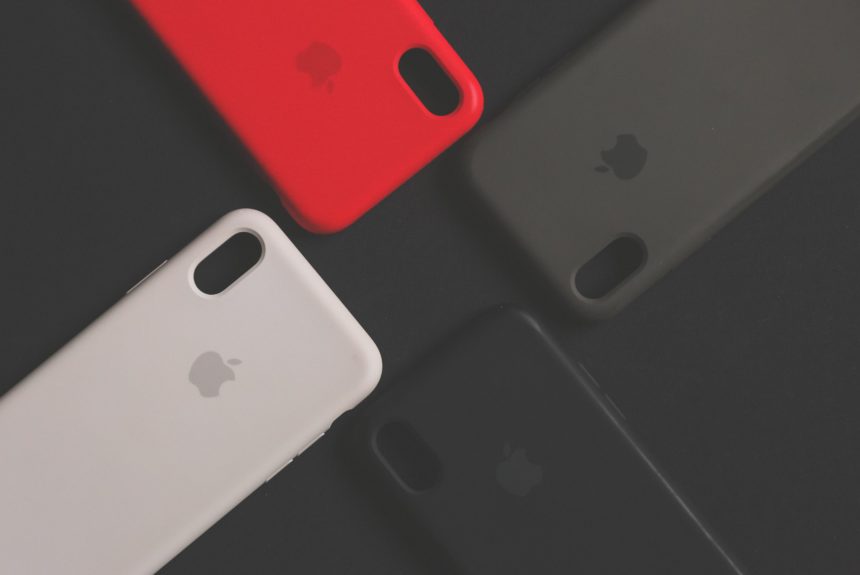Pivet, an innovative startup founded by Michael Pratt, is disrupting the consumer electronics industry with biodegradable plastic phone cases that basically recycle themselves.
Plastic presents quite a challenge to decompose. According to the National Oceanic and Atmospheric Administration, untreated plastic in the ocean can take anywhere from 20 to 500 years to biodegrade. That’s why entrepreneur Michael Pratt has pioneered the first-ever self-cycled premium phone case line of its kind, Pivet.
Pratt launched Pivet Communications in 2018 after more than 20 years of working as an ambassador for leading brands in the mobile industry, and he is on a mission to disrupt the consumer electronics market with high-quality, environmentally friendly products. The name “Pivet” is a play on words regarding Pratt’s desire to ‘pivot’ the industry towards more sustainable practices, and zero-waste phone cases could revolutionize the consumer plastics industry.
>>>This Tree-Tracking Startup Is the Most Innovative of Its Kind
Pratt sought a solution to the fact that 90% of U.S. plastic is not recycled. Instead of reorienting consumer behavior towards recycling (which even the most eco-conscious users may at times forget), Pratt created a foolproof solution to ensure his customers don’t contribute to the plastic waste problem: the self-cycle phone case.
Pivet covers its plastic phone cases with an exclusive microbe-attracting mixture called “Toto-Toa” that combines organic and non-hazardous ingredients to attract surface-colonizing microbes. These microbes speed up the natural biodegradation process when activated in landfills, oceans, and soil. According to the company, the cases can biodegrade in as little as two years, rather than the hundreds of years it can take in nature.
“If you don’t recycle, the Pivet case will simply self-cycle itself. With the help of a unique chemical formula, the plastic is 100% ‘bio-available’ to nature’s decaying agents,” Pratt claims.
Quality is not compromised when it comes to Pivet’s Toto-Toa enhanced cases. The self-cycle technology does not affect the performance of the product or alter the user experience. Best of all, the product has an unlimited shelf life, so consumers need not worry about the case starting to degrade while they’re still using it. Biodegradation is only triggered in microbial environments ripe with heat and humidity, rendering the product entirely suitable for everyday use.
The Austin, Texas-based startup offers its self-cycle cases in a range of curated collections, each with its own unique design and purpose. One of its most popular products is the Aspect Self-Cycle case, which is ideal for everyday use. Pivet also sells higher and lower impact options, respectively, the “Sentri” and “Zero” self-cycle lines. More recently, the company came out with a new product range in partnership with the non-profit advertising agency Ocean Agency titled “Aspect: Ocean Blue.” The name was chosen as a tribute to the vivid blue color that coral transforms into when facing environmental pressure from climate change.
Pratt plans to go one step further. Later this year, the brand will release a range created from “negative waste” (ocean-sourced plastic), meaning consumers will be offsetting their carbon footprint when buying Pivet’s product.
“We’re doing the full closed cycle of the circular economy,” Pratt says. “When you buy a Pivet product, you will actually be pulling litter and plastic that’s already been used in the world and giving it a proper burial.”
Interestingly, Pratt doesn’t think plastic is bad by default. According to Pratt, the problem lies in dealing with plastic in its end-of-life phase.
“Everyone else in the market is working on the 10%. Pivet looked at the problem from another perspective. The problem with plastic isn’t plastic. It’s what do we do with it when we’re done with single-use plastic items. Once you answer what you do with plastic at the end-of-life cycle, you solve the plastic issue,” Pratt says.
Indeed, by creating a product that manages to bypass the recycling phase, the brand functions very differently from other companies–who still place the burden of recycling on the consumer.
Although shifting consumer behavior towards sustainability is certainly important, ensuring producers themselves absorb more responsibility for expanding their carbon footprint is a better and much-needed step in meeting our climate goals.
In this sense, the cases are a ‘guilt-free’ solution to plastic waste–and a trend that leaders in other industries ought to follow.
Nathalie Voit is a freelance content creator and a graduate of the University of Florida. She is an alumni of The Heritage Foundation’s Young Leaders Program.
The views and opinions expressed are those of the author’s and do not necessarily reflect the official policy or position of C3.
